Iran’s parliament approved all 19 cabinet nominees submitted by President Masoud Pezeshkian, a reformist who won the snap presidential election in July 2024. His cabinet was more diverse than the previous cabinet of President Ebrahim Raisi, the hardliner who died in a helicopter crash in May 2024. The incoming ministers included reformists and hardliners as well as technocrats and academics with no political affiliations. They reflected compromise in a political system where the judiciary and legislature were dominated by hardliners. Before submitting his cabinet list, Pezeshkian had the approval of Supreme Leader Ayatollah Ali Khamenei, the Revolutionary Guards, and security agencies. “The road to our salvation is unity and solidarity,” he told the 285 lawmakers present for the vote on Aug. 21, 2024.
Out of the 19 nominees, seven had served as ministers or deputy ministers under President Hassan Rouhani (2013-2021), a centrist who had the backing of reformists, and six had served under President Raisi (2021-2024). “Consensus for Iran,” Pezeshkian wrote after the parliamentary vote in a post on X with a photograph between Gholam Hossein Mohseni Ejei, the hard-line judiciary chief, and Mohammad Bagher Qalibaf, the parliamentary speaker and traditional conservative.
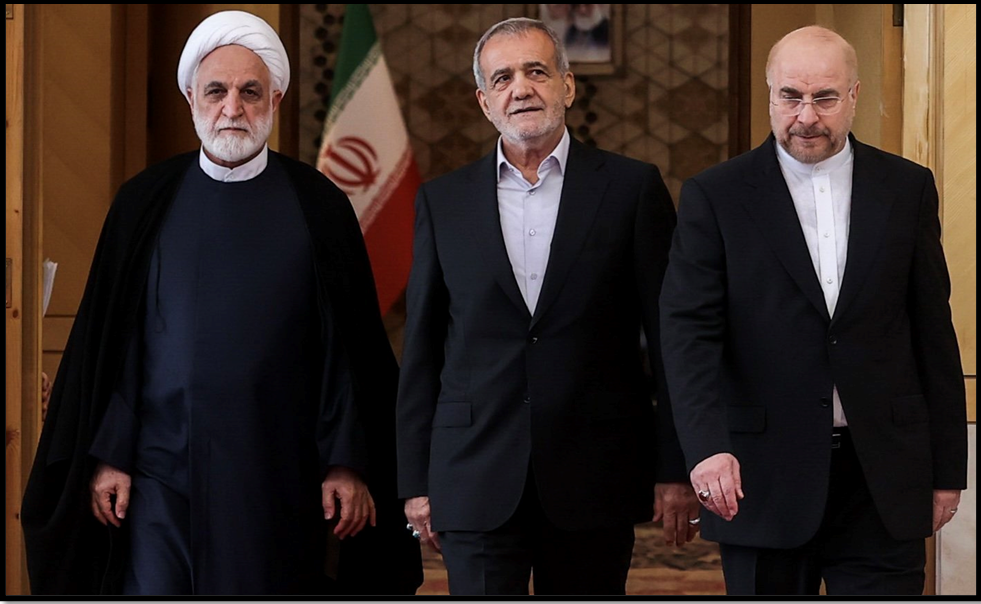
Iranian politics have been fractious since the 1979 revolution but were increasingly polarized as hardliners sidelined reformists during elections between 2020 and 2024. During the 2024 campaign, Pezeshkian navigated between acknowledging people’s rights and pledging loyalty to Supreme Leader Ayatollah Ali Khamenei and the principles of the 1979 revolution. He openly advocated for equal rights for women and greater inclusion of ethnic and religious minorities. Yet he only selected one woman, Farzaneh Sadegh, to head the Ministry of Roads and Urban Development. No Sunnis or ethnic minorities were represented.
The new cabinet won support from hardliners in Parliament but fell short of expectations among Pezeshkian’s supporters. He had promised that 60 percent of the incoming ministers would be under 50 years old. But only two nominees fit that criteria. The median age of his cabinet was just under 60.
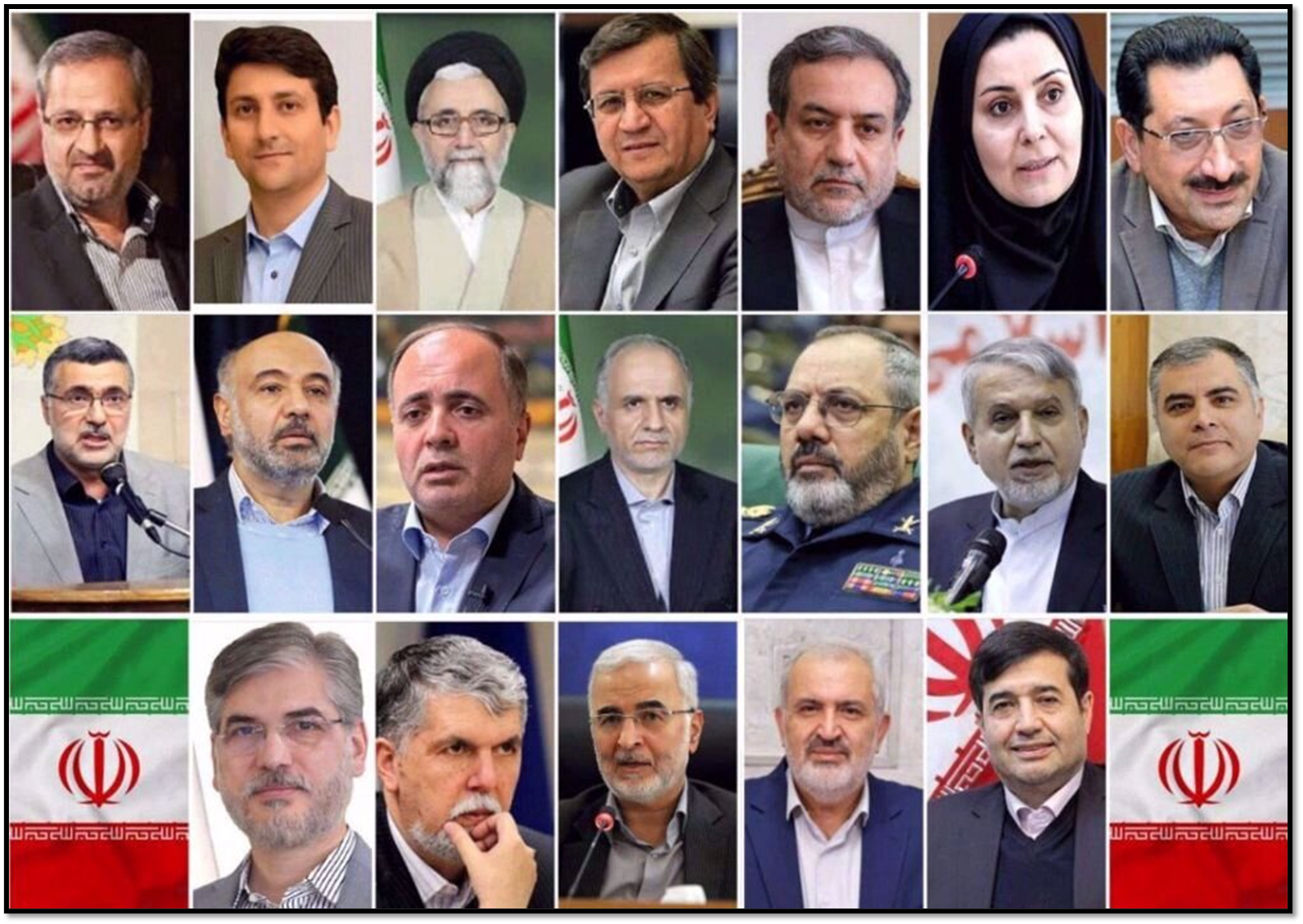
The cabinet nominations triggered immediate fallout. Mohammad Javad Zarif, a former foreign minister appointed by Pezeshkian to be vice president for strategy, resigned a day after the list was announced. Zarif had originally been charged with coordinating the committees that recommended and vetted candidates. “I am ashamed that I could not implement, in a decent way, the expert opinion of the committees [responsible for selecting candidates] and achieve the inclusion of women, youth and ethnic groups, as I had promised,” he said on X.
Today and for first time in over 20 years, all ministerial nominees in #Iran have been approved by the #Majles; our Parliament.
This is a testament to efficacy of @drpezeshkian's approach to governing based on reconciliation and national unity.
Congratulations to all, and… pic.twitter.com/IzTFCnGXga— Javad Zarif (@JZarif) August 21, 2024
Other reformists acknowledged the constraints that Pezeshkian faced. “One should not expect miracles from this government, especially considering that more than 80 percent of the country's power is in the hands of other entities,” said Azar Mansouri, the head of the Reform Front. Former President Khatami, still the figurehead for the broader reformist movement, remarked, “Things could have been handled better. We do not expect miracles from him under any circumstances.” Pezeshkian, a five-time member of parliament, was the first president to have all of his officials approved by lawmakers since Mohammad Khatami, a reformist, in 2001.
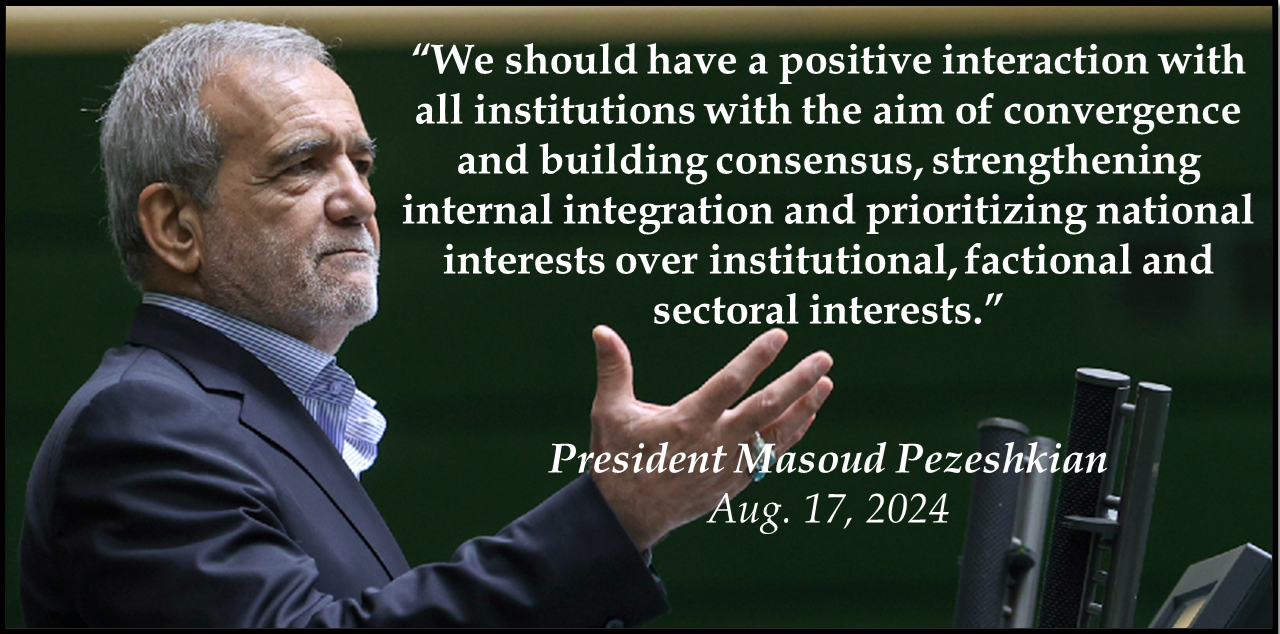
Pezeshkian’s selection of Abbas Araghchi as foreign minister reflected his commitment to more engagement with the outside world. During the campaign, Pezeshkian had called for improving ties with the West and reviving the 2015 nuclear deal. He argued that relief from U.S. sanctions and foreign investment were essential for significant economic growth. “No government in history has been able to achieve growth and prosperity within a cage,” he said during the July 2 debate. Araghchi, a career diplomat and pragmatist, helped negotiate the 2015 nuclear deal with the world’s six major powers – Britain, China, France, Germany, Russia, and the United States – when Iran curbed its nuclear program in exchange for sanctions relief. The following are profiles of the incoming ministers.
Abbas Araghchi (Minister of Foreign Affairs)
Born in 1962, Araghchi is a career diplomat and nuclear negotiator. He volunteered to fight in the Iran-Iraq War in the 1980s and joined the foreign ministry afterward in 1989. He earned a bachelor’s degree in international relations from the ministry’s school of international relations and served as chargé d'affaires of Tehran’s Organization of the Islamic Conference mission in Jeddah, Saudi Arabia. In the mid-1990s, Araghchi earned a master’s in political science from Islamic Azad University in Tehran, and then earned a PhD in politics and government from the University of Kent in Britain, where he focused on Islamic political thought and learned to speak English fluently.
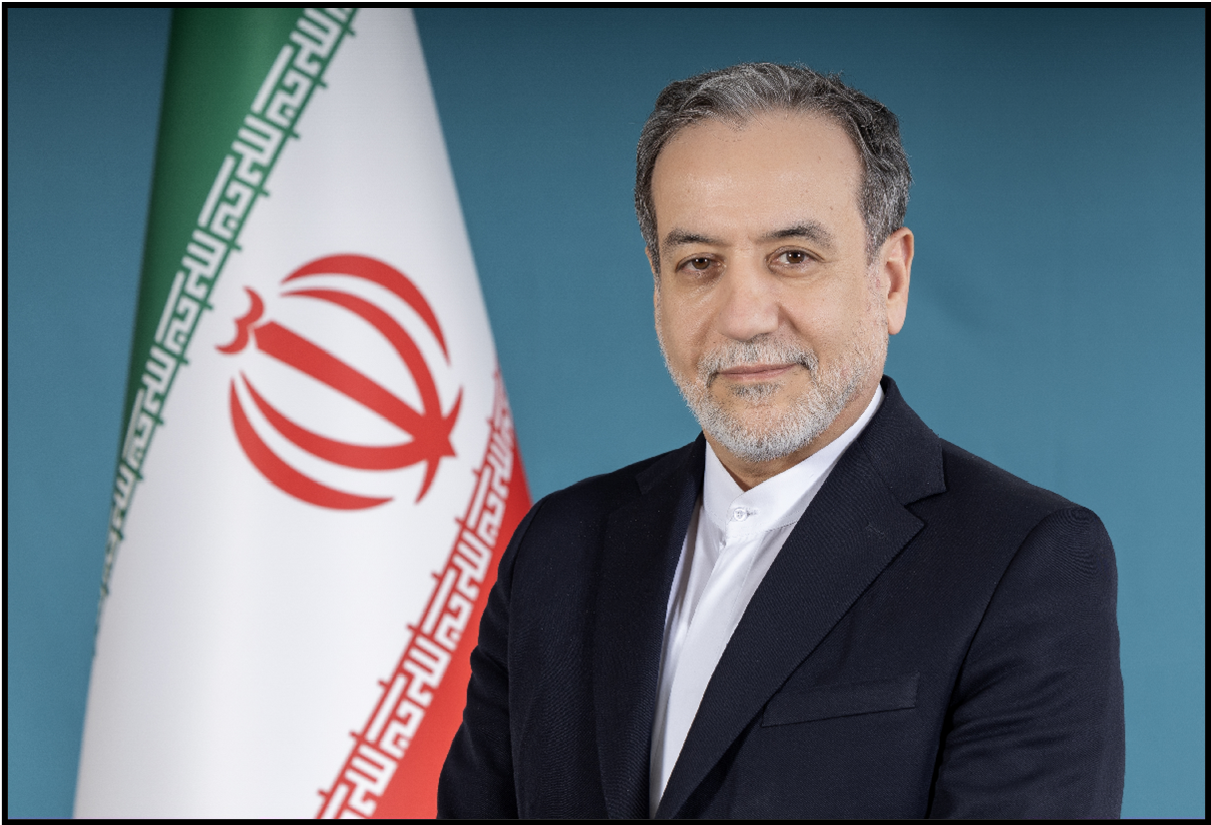
Araghchi then returned to Iran and held senior positions at the Institute for Political and International Studies, a foreign ministry think tank. Araghchi served as Iran’s ambassador to Finland from 1999 to 2003 and ambassador to Japan from 2008 to 2011. In 2013, Foreign Minister Zarif appointed him as deputy nuclear negotiator. He played an instrumental role in talks that led to 2015 nuclear deal between Iran and the world’s six major powers in which Tehran agreed to curb its program in exchange for sanctions relief. Araghchi and later participated in indirect talks with the United States to revive the deal in 2021.
Aragchi was known for his pragmatic approach to foreign relations. He advocated for better relations with European countries but acknowledged irreconcilable differences with the United States. “Either you abandon the anti-imperialistic discourse, which means you are no longer the Islamic Republic, or you must confront the United States,” he said in 2024. “Therefore, resolving the problem is not feasible, but managing it is imaginable.”
Abdolnasser Hemmati (Minister of Economic Affairs and Finance)
Born in 1956, Hemmati is a professor, economist, and centrist politician. During the 1980-1988 war with Iraq, Hemmati was the director general of the news department at Islamic Republic of Iran Broadcasting (IRIB), a state media outlet. After the war, he served as vice president of IRIB from 1989 to 1994. He received his doctorate in economics from Tehran University in 1993.
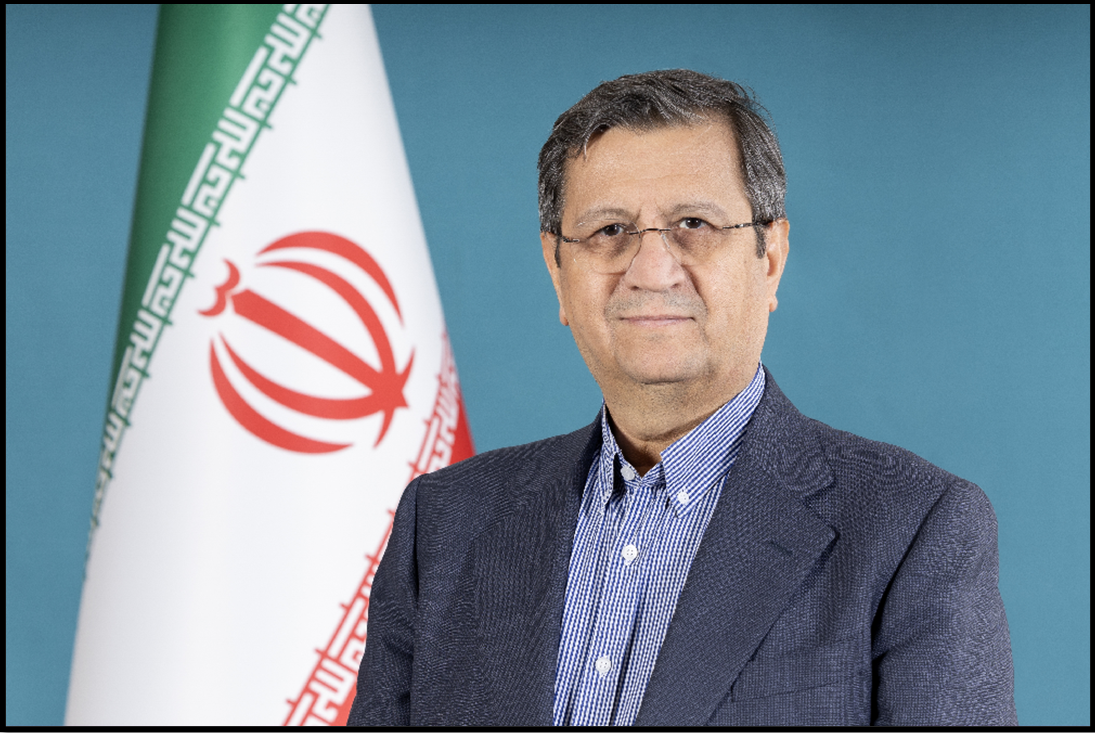
In 2001, Hemmati was appointed to the economic committee of the Supreme National Security Council, a position he held until 2006. Hemmati left for the private sector. He was CEO of Bank Sina from 2006 to 2013 and CEO of Bank Melli from 2013 to 2016. Both banks were sanctioned by the Obama administration for servicing entities involved in Iran’s nuclear and ballistic missile programs; both banks were removed from the sanctions list as part of the 2015 nuclear deal.
Hemmati headed the Central Bank from 2016 to 2018 under President Hassan Rouhani. His tenure coincided with the height of the Trump administration’s “maximum pressure” campaign, which included U.S. sanctions on the Central Bank for supporting the Revolutionary Guards and Hezbollah in Lebanon. Hemmati revamped Iran’s currency to simplify financial transactions. He also negotiated the purchase of COVID-19 vaccines from Japan and South Korea using Iranian assets frozen in both countries.
Rouhani’s cabinet dismissed Hemmati from his position at the Central Bank in 2021 because he would not have been able to fulfill his duties while campaigning for president. Hemmati was endorsed by the Executives of Construction Party, a reformist party known for its free-market stances. But he downplayed the importance of labels. “Reformist and principlist (hardliner) no longer makes sense; I am your humble voice,” he said during an event on Clubhouse, an audio-based platform. Hemmati has also said that he wanted to be the voice of the “silent majority.” He was the only candidate to remain in the 2021 race who was not a hardliner. Hemmati took third place with 8.42 percent of the vote. He registered for the 2024 presidential election but was rejected by the Guardian Council.
Mohammad Atabak (Minister of Industry, Mine and Trade)
Born around 1968, Atabak is a businessman and engineer. He earned a master’s in civil engineering from the University of Michigan in the United States.
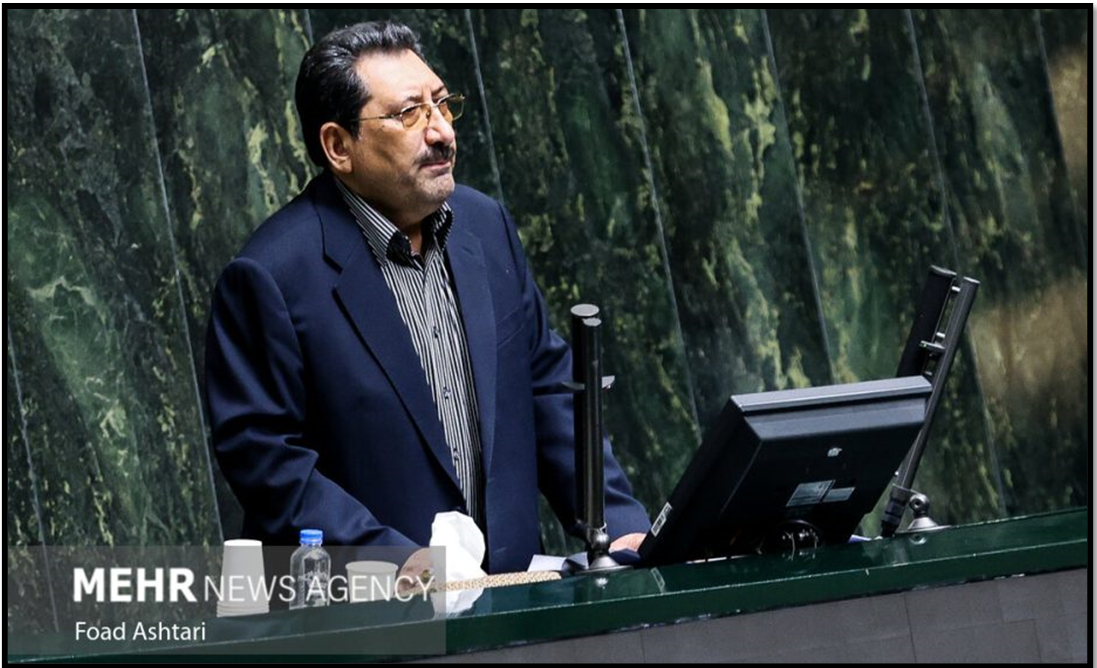
Atabak has had a long career in the private industrial sector as CEO of Tehran Cement and Kaveh Pars Mineral Industries Development Company. During his time at Kaveh Pars, he helped to increase steel production capacity. Atabak was sanctioned by the United States in 2020 for being a senior officer of Kaveh Pars, which was designated for being owned by Bonyad Mostazafan, an economic conglomerate controlled by Supreme Leader Khamenei. Atabak was appointed vice president of the Tehran Chamber of Commerce and economic deputy of Bonyad Mostafazan from 2021 to 2023.
Ahmad Meydari (Ministry of Cooperatives, Labor, and Social Welfare)
Born in 1963, Meydari is an economist, academic and former reformist lawmaker. He earned a master’s degree in economic development and a specialized doctorate in economics from Tehran University.
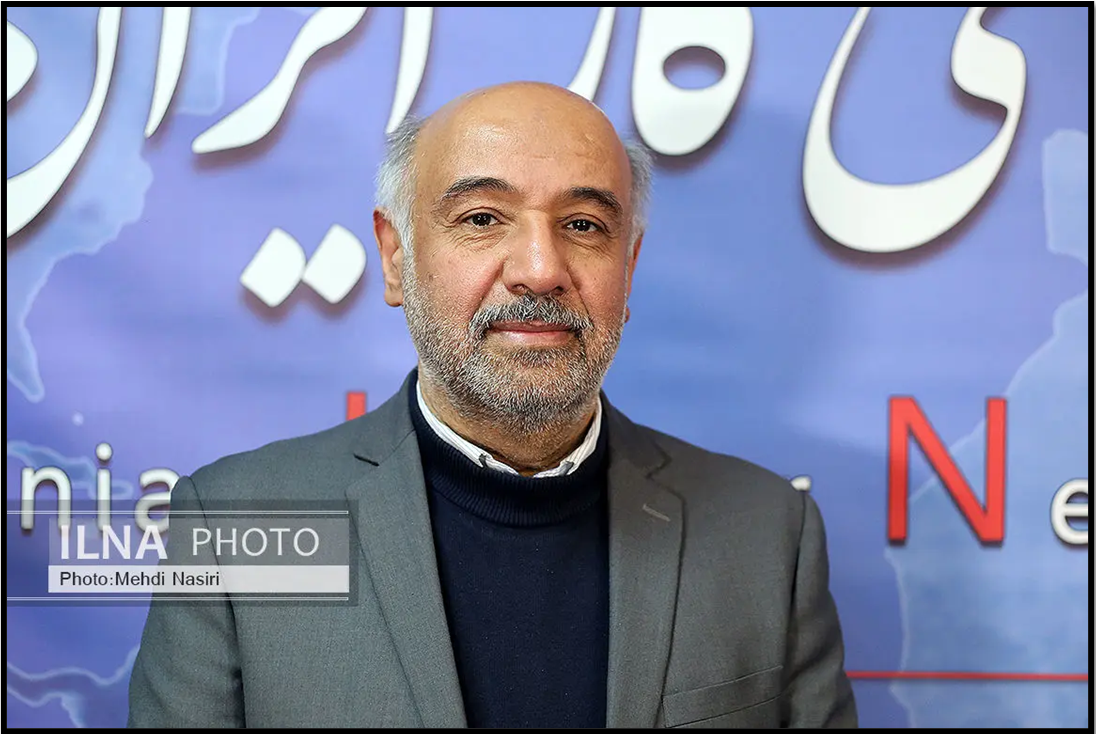
Meydari represented Abadan in Parliament from 2000 to 2004. He served as deputy minister for social welfare under President Rouhani from 2013 to 2021. In 2016, Meydari was appointed head of the Statistics Committee of the Ministry of Cooperation, Labor and Social Welfare. Meydari pursued a plan to provide electronic food coupons for items considered basic commodities, but it was ultimately not implemented. He has also worked toward increasing school enrollment for impoverished children.
Esmail Khatib (Minister of Intelligence)
Born in 1961, Khatib is hardliner and a cleric with a long career in intelligence. He joined the Revolutionary Guards in 1985 and was assigned to the intelligence unit. Khatib was the Ministry of Intelligence and Security (MOIS) director for central Qom province in the 1990s. He later worked in the Office of the Supreme Leader Protection Organization and, in 2012, was appointed director of the judiciary’s counterintelligence organization.
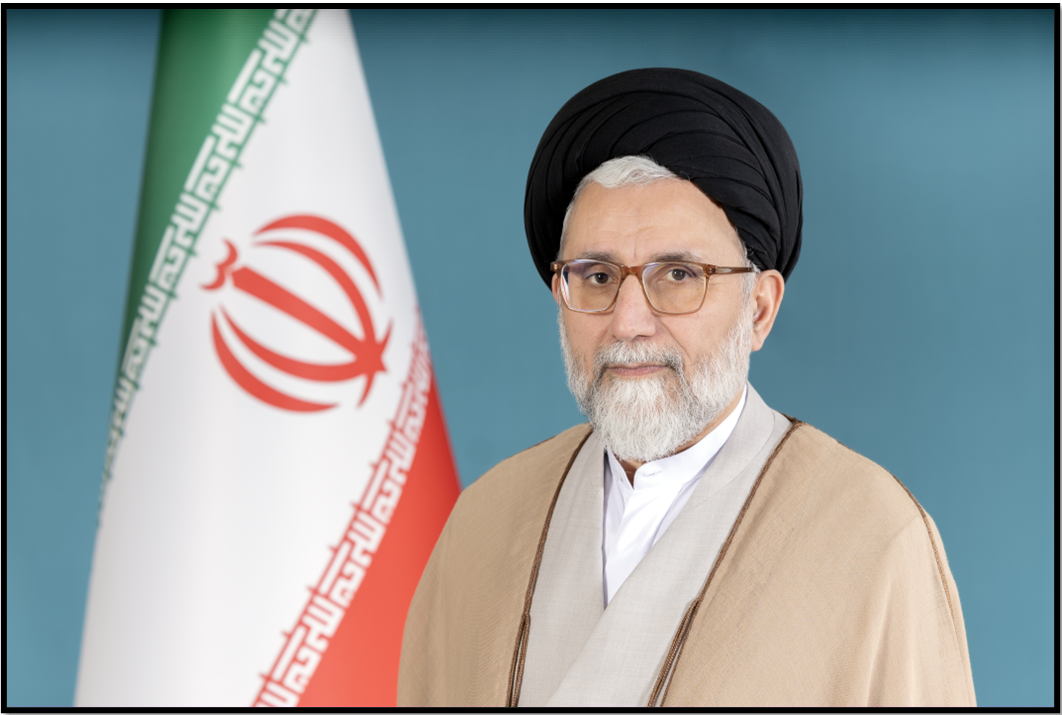
Khatib was appointed head of the MOIS by President Raisi in 2021. During the 2022 anti-government protests sparked by the death of Mahsa Amini in police custody, Khatib accused Western powers, Israel and Saudi Arabia of waging a “hybrid war” against the Islamic Republic by fomenting unrest and spreading propaganda in foreign media. “We will never sponsor acts of terrorism and insecurity in other countries, as Britain does, but we also have no obligation to prevent insecurity in those countries either,” Khatib said in a November 2022 interview. “Therefore, Britain will pay for its actions aimed at making Iran insecure.” The mid-ranking cleric had close ties to Ayatollah Ali Khamenei.
Eskandar Momeni (Minister of Interior)
Born around 1958, Momeni is a senior Revolutionary Guards commander. He was a commander in the 25th Karbala Division during the Iran-Iraq War, and later became the division’s chief of staff. He developed close ties to Mohammad Bagher Qalibaf – a conservative who later served as the mayor of Tehran and parliamentary speaker – when serving as the command of the police force in Khorasan Razavi province during Qalibaf’s tenure as police commander. He then became deputy of police operations and succeeded Hossein Ashtari as national police commander in 2015. Momeni has served as the secretary of the Drug Control Taskforce since 2018.
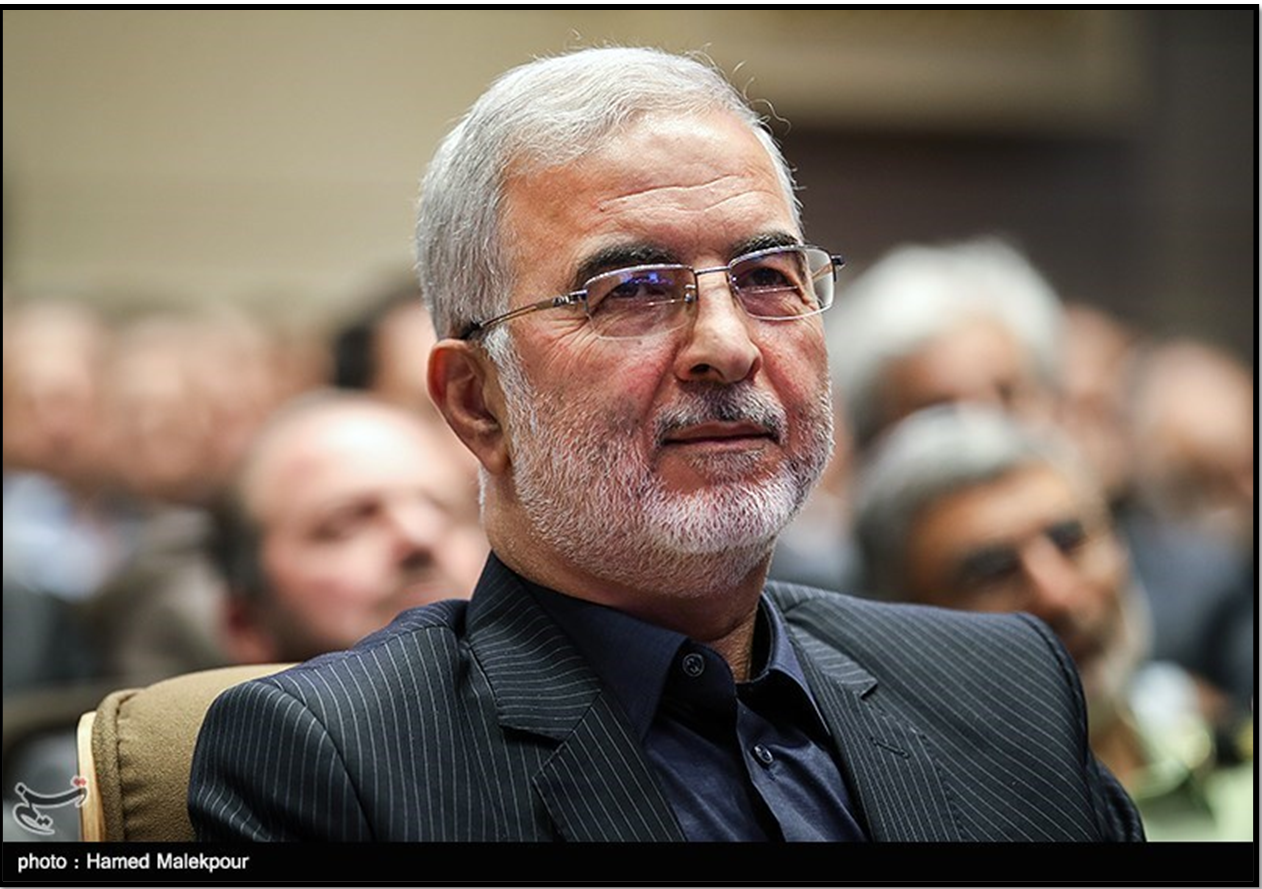
Momeni has characterized protesters in Iran as “rioters” and was allegedly responsible for harsh crackdowns and enforcement of morality laws. He has outlined plans to halt Afghan migration to Iran. At other times, he has used inclusive rhetoric. In 2024, he called for the “eradication” of discrimination. “I believe in equal opportunity for all women and men; we respect the rights and freedoms of society.”
Aziz Nasirzadeh (Ministry of Defense)
Born in 1965, Nasirzadeh has held several positions in the conventional Iranian Army and Air Force. He graduated from the Air Force Pilot School, trained in Iran and Pakistan, and served in the Iran-Iraq War as part of the F-14 tactical aircraft battalion.
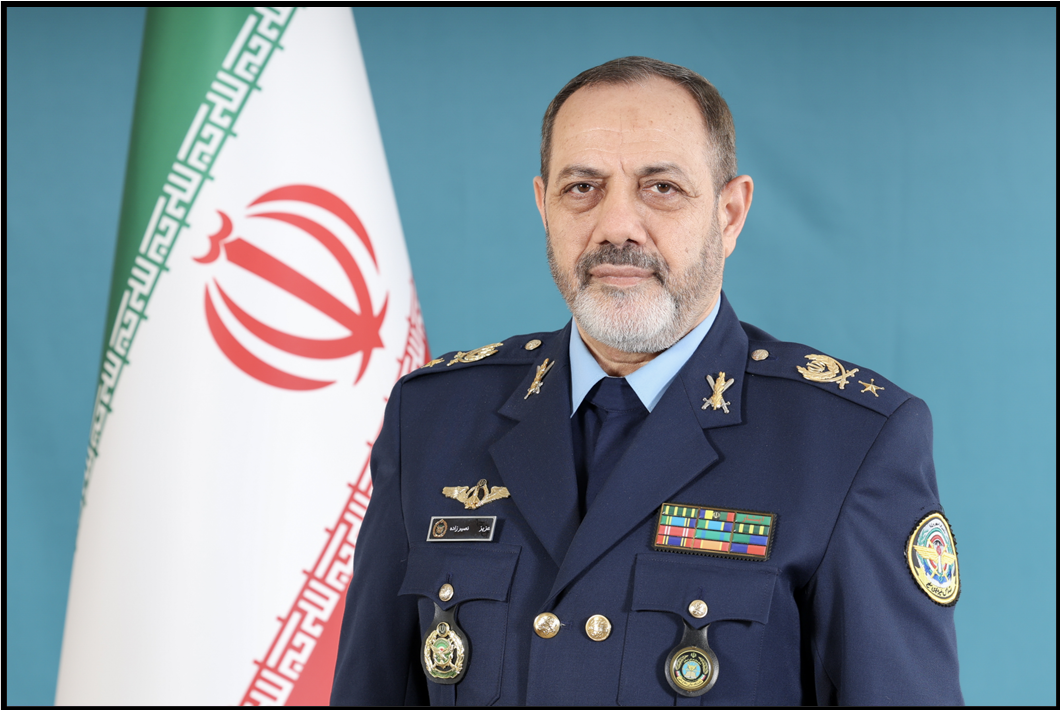
After the war, he became the military attaché of Iran in Italy and deputy head of Air Force Intelligence. He was appointed commander of the Iranian Air Force in 2018. Nasirzadeh was appointed deputy of chief of staff for the Armed Forces of Iran in 2021. After being tapped in 2024 to head the defense ministry, he received 281 votes, more than any other Pezeshkian nominee.
Amin Hossein Rahimi (Minister of Justice)
Born in 1968, Rahimi served as Minister of Justice under President Raisi from 2021 to 2024. He earned a master’s degree in public law from Tehran University and has served in various government positions for three decades. The hardliner represented Malayer in Hamdam province in Parliament from 2008 to 2012 and was elected as chief prosecutor of the Court of Audit, Iran’s administrative and financial court, in 2013. He held the position for three years.
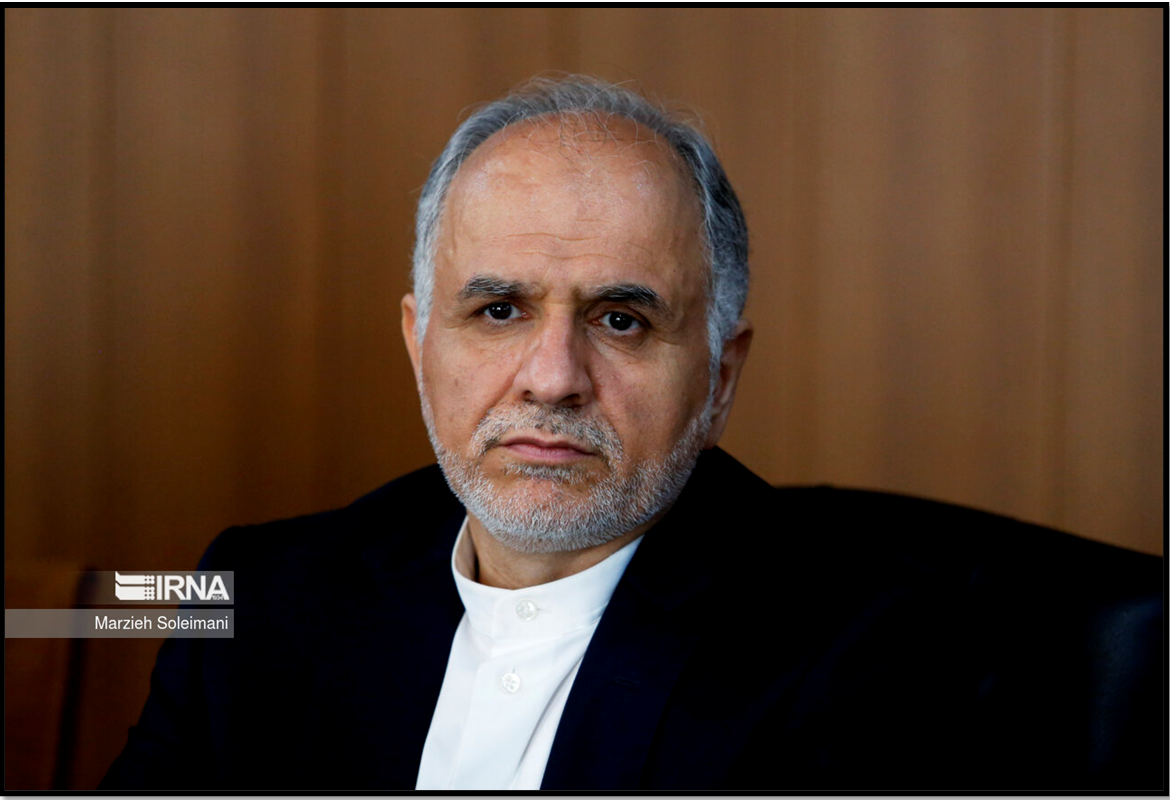
Rahimi was appointed Minister of Justice in 2021 and received the highest number of confirmation votes among all cabinet members that year. He implemented anti-corruption measures and drafted bills addressing criminal extradition and the protection of Iranians abroad.
Mohsen Paknejad (Minister of Petroleum)
Born around 1967, Paknejad has held several positions in the oil ministry since 1991. He received a bachelor's degree in electrical engineering from Tehran University and a master's degree in industrial engineering from Amir Kabir University of Technology.
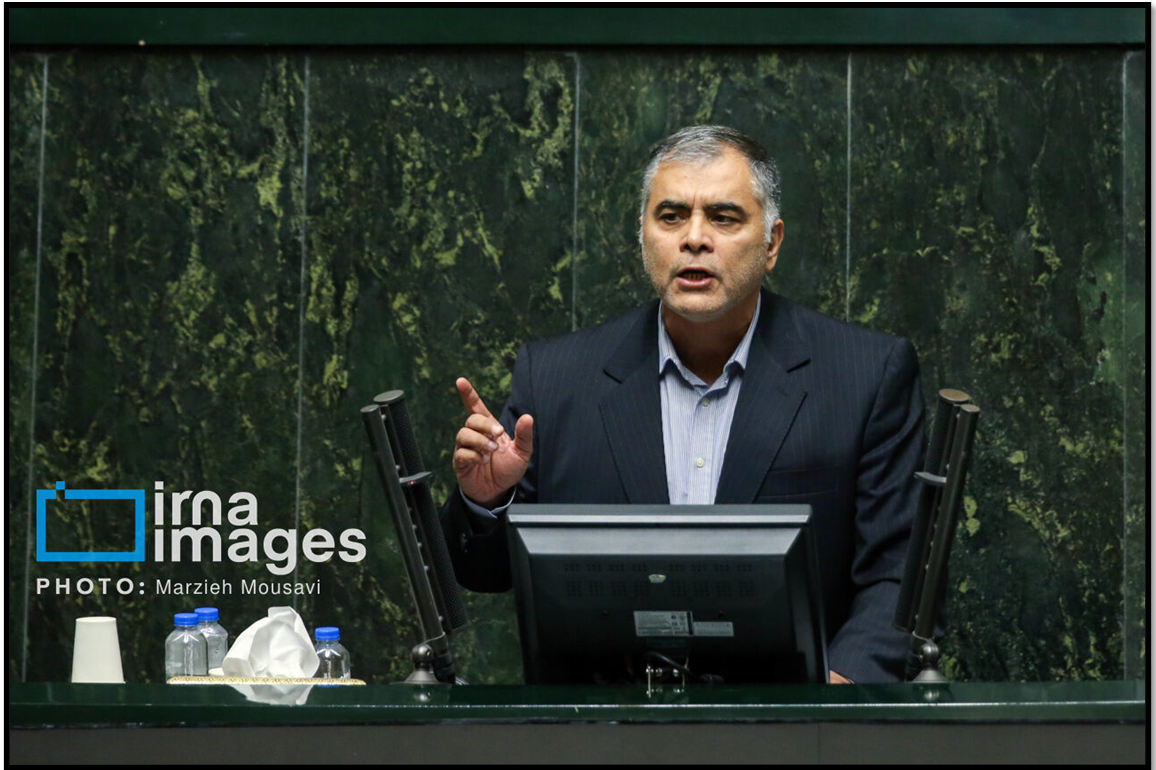
He began his career as an advisor to the oil minister and served as planning director of Iran's Central Regions Oil Company from 2004 to 2006. In 2006, he was appointed deputy CEO of the National Iranian Oil Company. In 2018, he was chosen by President Rouhani as Deputy Minister of Oil and was responsible for hydrocarbon resources.
Abbas Aliabadi (Ministry of Energy)
Born in 1962, Aliabadi is a mechanical engineer and academic. He earned a bachelor's and master's degree in mechanical engineering with a specialization in energy conversion from Sharif University of Technology and Tehran University and a doctorate in mechanical engineering from Khawaja Nasiruddin Tosi University.
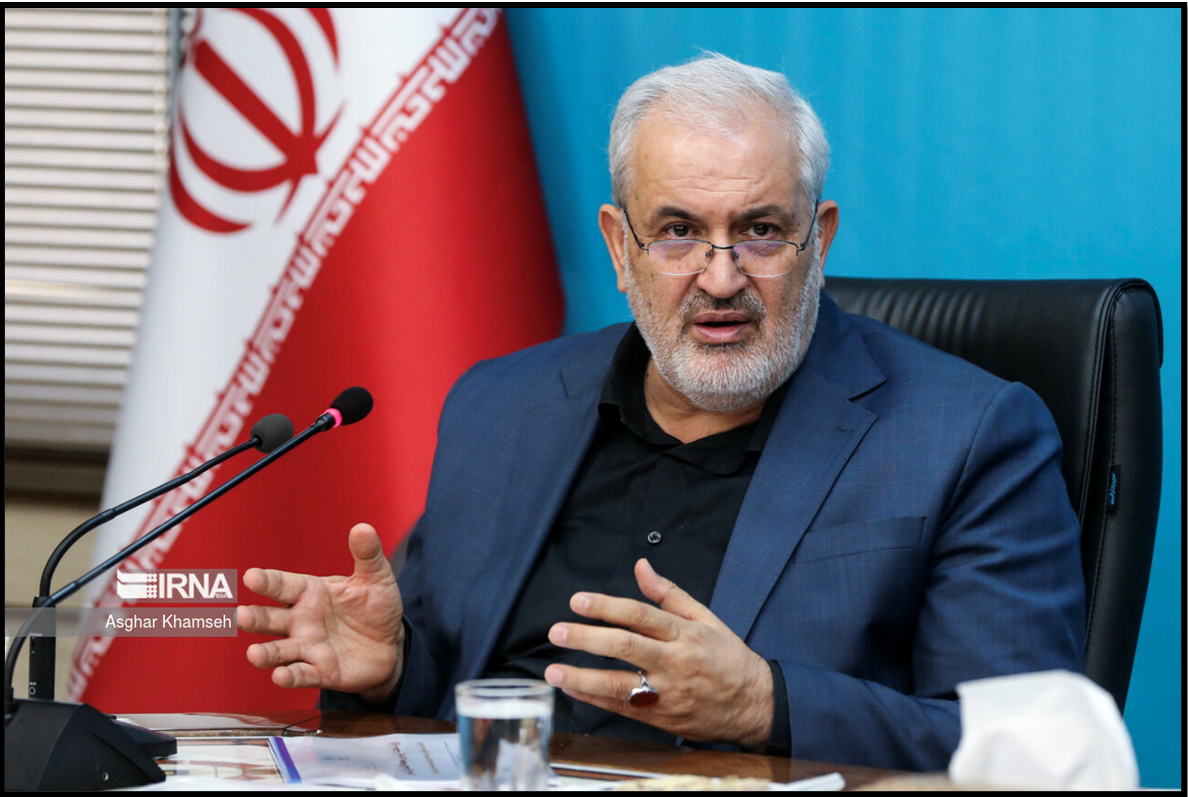
In 2008, he became the CEO of Mapna, a group of Iranian companies involved in power, oil and gas, and railway projects. He then served as Deputy Minister of Power Affairs at the Ministry of Energy, overseeing the management of Kharkheh dam and Karun 3 power plant.
Sattar Hashemi (Minister of Communication and Information Technology)
Born in 1976, Hashemi is one of Iran’s leading artificial intelligence experts. He received a joint PhD in artificial intelligence from the Iranian University of Science and Technology and Monash University in Australia in 2008 and began his career in the Faculty of Electrical and Computer Engineering at Shiraz University.
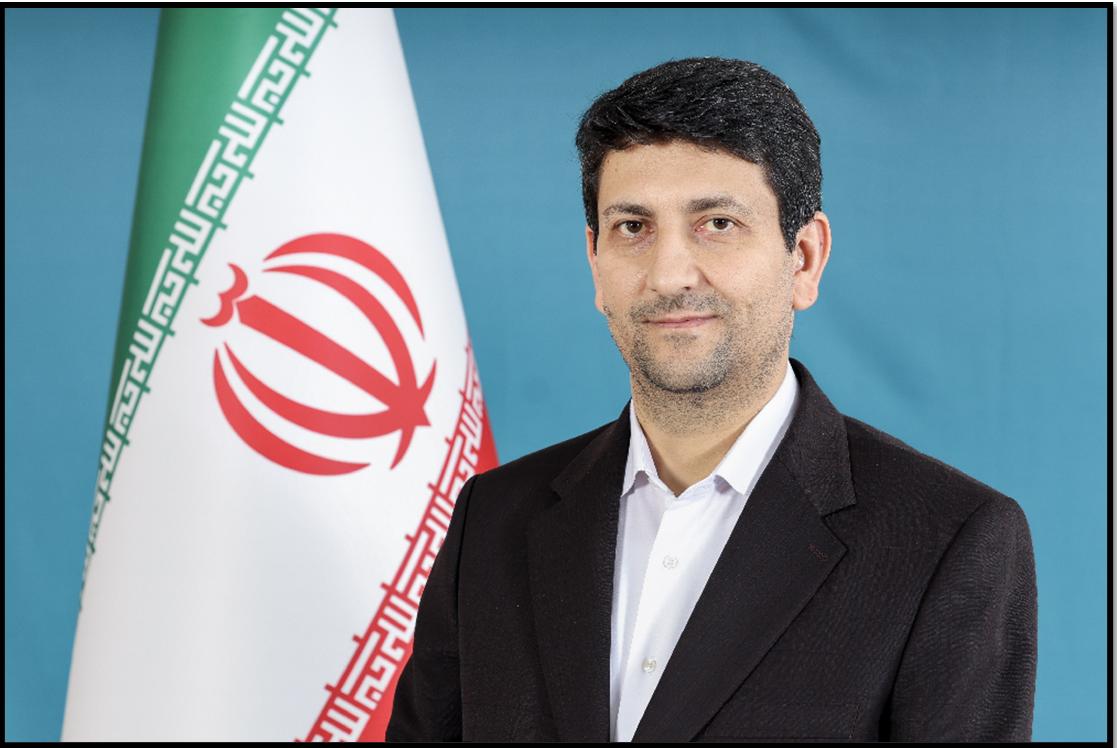
In 1994, he was appointed as General Director of Communications and Information Technology in Fars province. Hashemi has served in several roles in the national Ministry of Communications, including Deputy Minister of Technology and Innovation of the Ministry of Communications from 2019 to 2021. Known for advocating domestic production of cell phones, he has also called for the expansion of 5G internet and usage of artificial intelligence.
Farzaneh Sadegh (Minister of Roads and Urban Development)
Born in 1976, Sadegh is an urban planner and architect. She received a master's degree in architecture from the University of Tehran and a doctorate in urban planning from Islamic Azad University. She has spent most of her 28 years of government service in the Ministry of Roads and Urban planning. In 2017, she was appointed deputy Minister of Urban Planning and Architecture by Mohammad Eslami, the former minister. She was the second female minister since the 1979 Revolution and the only woman in Pezeshkian’s cabinet.
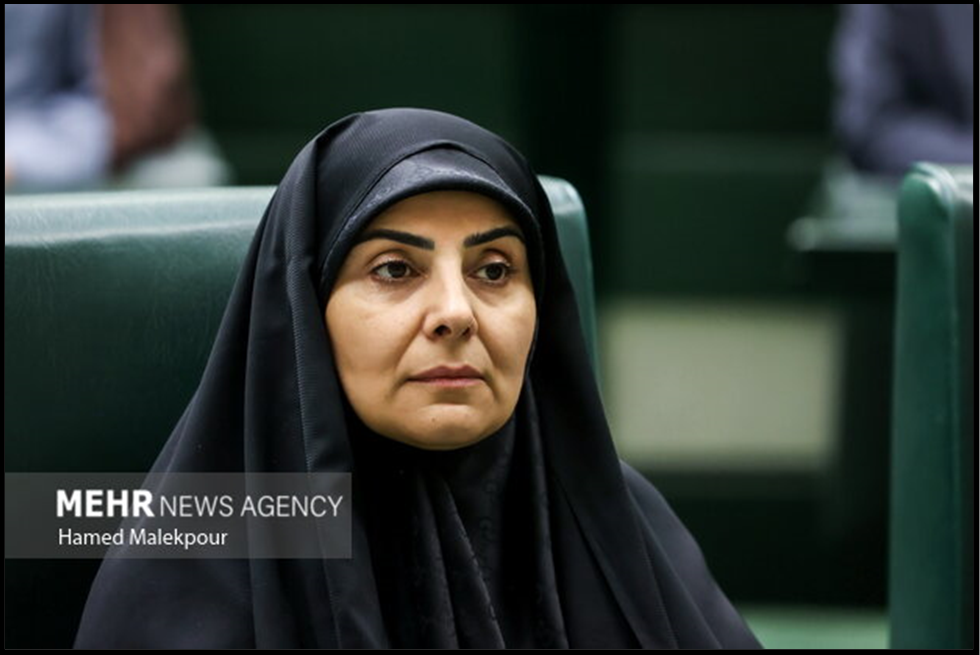
Mohammadreza Zafarghandi (Ministry of Health and Medical Education)
Born in 1958, Zafarghandi is a vascular surgeon, academic, and politician. He studied medicine at Tehran University and volunteered as a surgeon in the Iran-Iraq war. He then completed his surgical residency at Tehran University of Medical Sciences and helped establish the vascular surgery department, later serving as dean of the university.
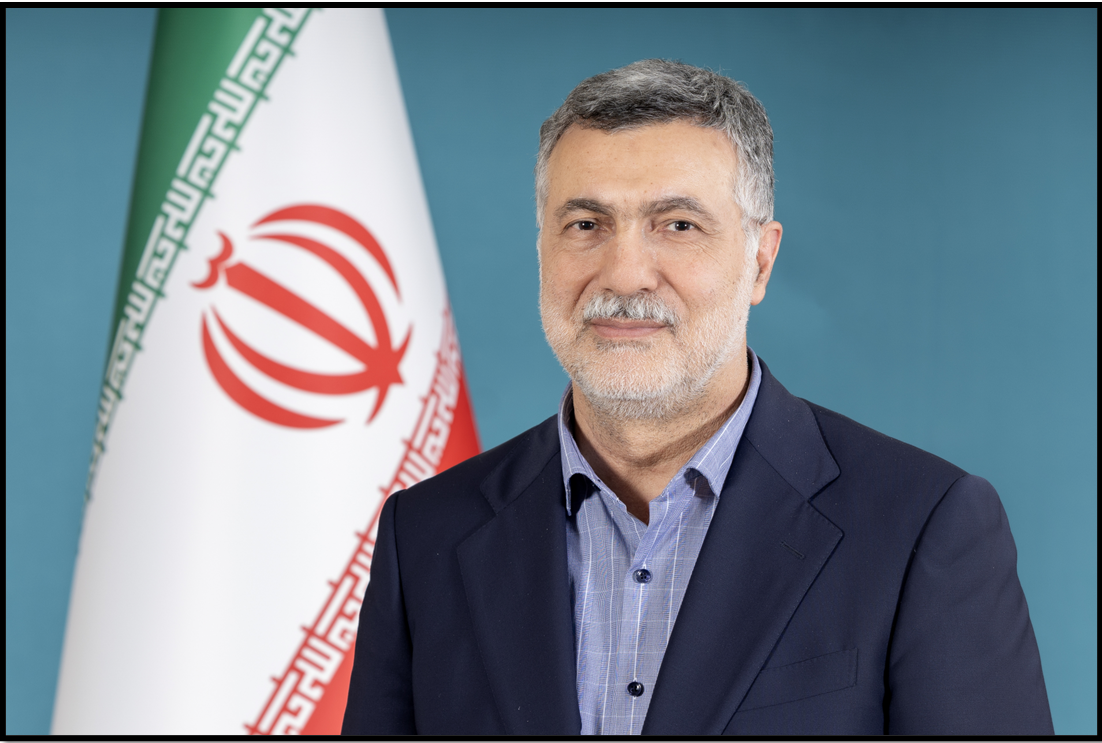
Zafarghandi became a rotating chairman of the Council for Coordinating the Reforms Front in 2016 and became the secretary general of the Islamic Association of Iranian Medical Society in 2019. Under President Rouhani, he played a key role in the COVID-19 response. He advocated for vaccinations and closures of public spaces but opposed the import of AstraZeneca vaccine due to its short immunity period. He has said that U.S. sanctions inhibited Iran’s management of the pandemic.
Alireza Kazemi (Minister of Education)
Born in 1965, Kazemi is the deputy of the national Drug Control Headquarters. He was the Deputy Minister of Education and briefly the acting Minister of Education under President Raisi from August to November 2021. He oversaw operations of Iranian schools during the COVID-19 pandemic. He served in the Iran-Iraq War in the 1980s. He is the brother of Mohammad Kazemi, Deputy Commander-in-Chief and Head of the Revolutionary Guards Intelligence Organization.
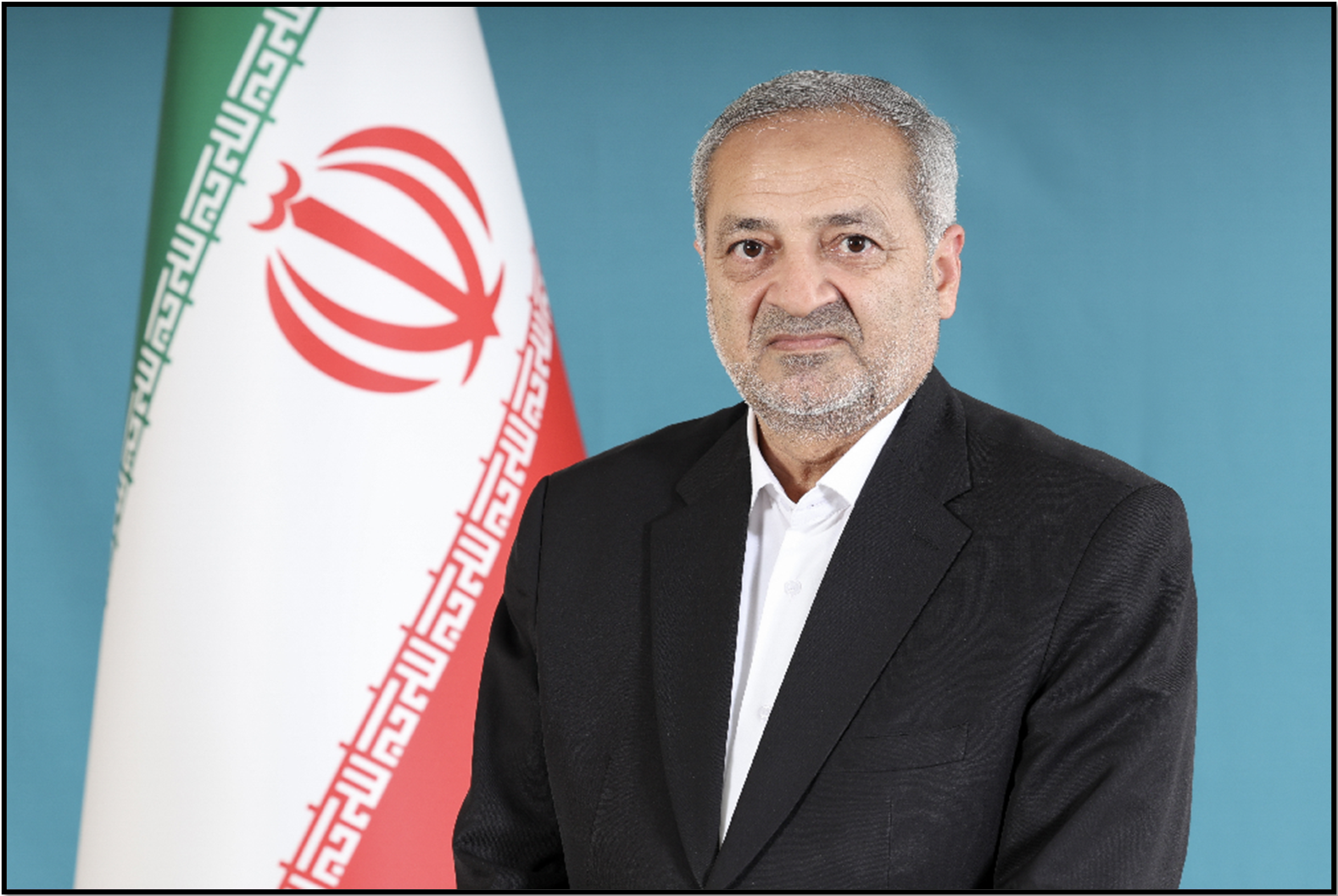
Gholamreza Nouri Ghezeljeh (Minister of Agriculture Jihad)
Born in 1970, Ghezeljeh represented Bostanabad in East Azerbaijan province in Parliament from 2012 to 2016 and 2020 to 2024. He earned a master’s degree in agricultural engineering and was pursuing a PhD in agricultural policy and development. He was a member of the Agriculture, Water, and Natural Resources Commission of Parliament and was affiliated with the reformist Iran Construction Agents Party. He has criticized successive governments for failing to implement the majority of national development plans.
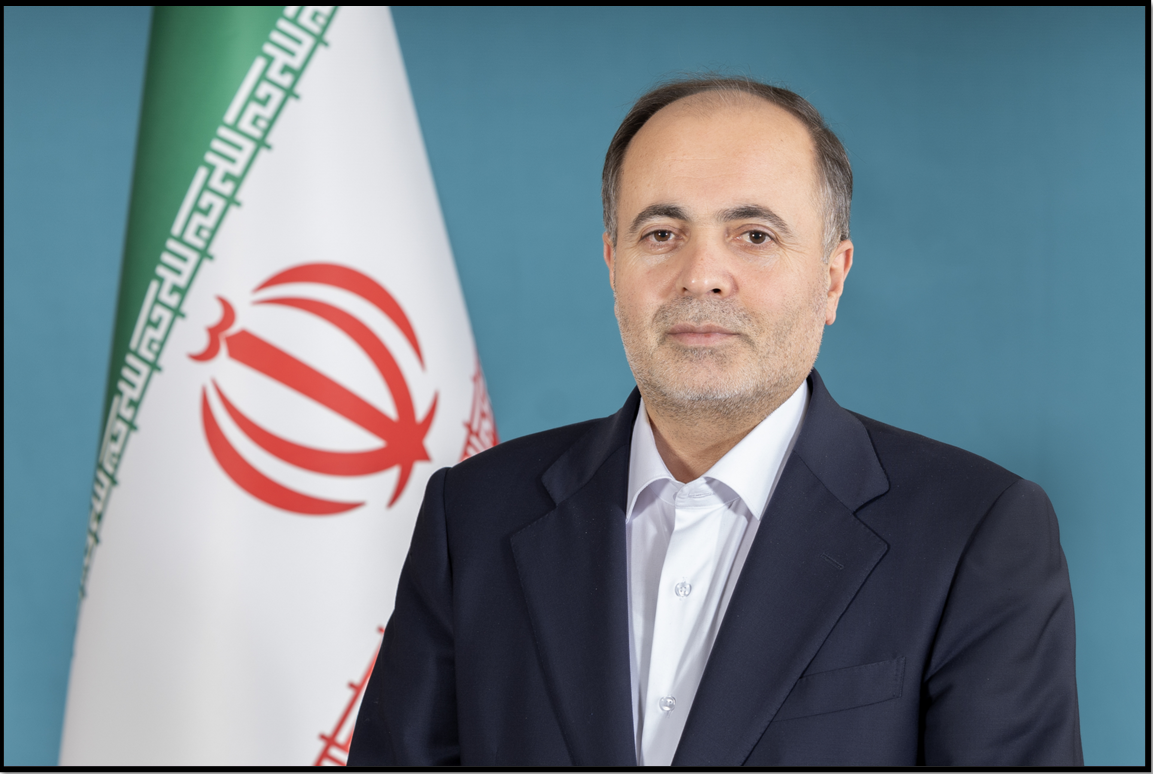
Hossein Sarraf (Minister of Science, Research and Technology)
Born around 1968, Sarraf is a lawyer, professor, and politician. His father was a member of Mashhad Seminary and campaigned against the monarchy. After high school, Sarraf volunteered to fight in the Iran-Iraq War. He participated in Operation Karbala-2, a ground offensive.
After the war, Sarraf received a bachelor’s in law from Tehran University, a master’s from Tarbiat Modares University, and a doctorate from Shahid Beheshti University. He an associate professor at Shahid Beheshti University, the director of private law research group of Shahr Danesh Legal Research Institute and arbitrator of the Iran Chamber of Commerce. In 2016, he was appointed Deputy Minister of Science, Research and Technology by Minister Mansour Gholami.
Hossein Sarraf (Minister of Science, Research and Technology)
Born around 1968, Sarraf is a lawyer, professor, and politician. His father was a member of Mashhad Seminary and campaigned against the monarchy. After high school, Sarraf volunteered to fight in the Iran-Iraq War. He participated in Operation Karbala-2, a ground offensive.
After the war, Sarraf received a bachelor’s in law from Tehran University, a master’s from Tarbiat Modares University, and a doctorate from Shahid Beheshti University. He an associate professor at Shahid Beheshti University, the director of private law research group of Shahr Danesh Legal Research Institute and arbitrator of the Iran Chamber of Commerce. In 2016, he was appointed Deputy Minister of Science, Research and Technology by Minister Mansour Gholami.
Abbas Salehi (Minister of Culture and Islamic Guidance)
Born in 1964, Salehi is an Islamic scholar and journalist with close ties to Supreme Leader Khamenei. He holds a bachelor’s degree in philosophy and a doctorate in Islamic theology. He began his career in the Khorasan Islamic Propaganda Office and was later appointed by Khamenei to the Board of Directors and the Board of Trustees of Qom Islamic Propaganda Office in the 1990s.
In 2017, Salehi was appointed Minister of Culture and Islamic Guidance by President Rouhani amid internal divisions within the ministry regarding book censorship. He served until the end of Rouhani’s term in 2021. As of 2024, he was the CEO of Ettela’at Institute and newspaper, a conservative daily, and President of the University of Islamic Denominations.
Seyyed Reza Salehi Amiri (Minister of Cultural Heritage, Tourism and Handicrafts)
Born around 1961, Saleh Amiri is a career public servant. He received a bachelor's and master's degree in political science and a doctorate in public administration from Islamic Azad University.
Beginning his career in the Ministry of Information, he became a member of the Supreme National Security Council and worked as an advisor to President Khatami. Under President Rouhani, he served as acting Minister of Sports from 2013 to 2014 and Minister of Culture and Islamic Guidance from 2016 to 2017. Tehran mayor Mohammed-Ali Najafi appointed Amiri deputy mayor and deputy of social and cultural affairs in November 2016. That same year, he became head of the National Olympic Committee.
Ahmad Donyamali (Minister of Sport and Youth)
Born in 1960, Donyamali is a former reformist lawmaker. He represented Bandar-e Anzali, Gilan province, in Parliament from 2020 to 2024. He received a master's degree in architectural and urban engineering from the Iran University of Science and Technology and a doctorate in urban planning from the University of Research Sciences. He served in the Iran-Iraq War as part of the 25th Karbala Division from 1980 to 1988.
From 2004 to 2008, he was the Technical and Civil Deputy of Tehran Municipality, spearheading efforts to build several traffic tunnels and parks and improve rainwater collection. Additionally, he led the Iranian Canoeing, Rowing, and Sailing Federation from 2004 to 2011 and directed the Ports and Shipping Organization. From 2013 to 2017, he was a member of the Tehran City Council.
Peyton Dashiell, a research assistant at the U.S. Institute of Peace, contributed to this report.
